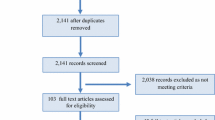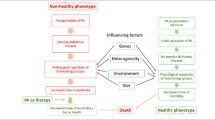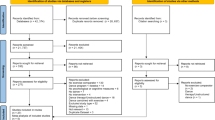Abstract
Background
In the general population, sport activity is associated with better health and better self-esteem. Among people living with HIV (PLHIV), sport activity could also be associated with better self-esteem. The main objective of our study was to assess the association between sport activity and self-esteem among people living with HIV. The secondary objectives were to evaluate the associations between sport activity with fatigue as well as with pain.
Methods
We performed a cross-sectional observational study among PLHIV in our region (Pays de la Loire in France). Each adult seen in routine HIV care was invited to participate in the study. Participants were invited to fill out self-questionnaires about sport activity, self-esteem, fatigue, and pain. The 2 groups of participants with and without sport activity were compared with a T Student test for self-esteem, fatigue, and pain scales.
Results
Among the 1160 people included in the study, 47% performed sport activity. The self-esteem score was better in the “sporting group” compared with the “non sporting group” (Rosenberg mean scale 32.7 ± 5.1/40 vs 31.9 ± 5 p = 0.01). The Functional Assessment of Chronic Illness Therapy Fatigue scale showed a lower fatigue in the sporting group than in the non-sporting group (mean total score 125 ± 22 vs 118 ± 24 p < 0.0001). The sporting group had a lower mean pain score (1.1 ± 1.8) than the non sporting group (1.4 ± 1.9 p = 0.004).
Conclusions
Among PLHIV in our region, sport activity was associated with better self-esteem, lower fatigue and lower pain. Sport activity should be included in patient care for people living with HIV.
Similar content being viewed by others
Background
Sport activity is defined as physical activity to improve physical condition, and set of physical exercises in the form of individual or collective games, practiced by observing certain specific rules (which may give rise to competitions). Among people living with HIV (PLHIV), sport activity is associated with better health, physically and psychologically [1,2,3,4]. Self-esteem, defined as the favorable opinion of oneself, is important to the self-management of a chronic illness [5], and is associated with better adherence to anti-retroviral treatment [6]. Sport should improve self-esteem, could be beneficial, and therefore should be included in patient care for patients.
The main objective of our study was to assess the association between sport activity and self-esteem. The secondary objectives were to assess the prevalence of sport activity, and to evaluate the association between sport and fatigue, sport and pain.
Methods
We performed a cross-sectional study among PLHIV from May to October 2019, in the 5 HIV treatment centers of the Pays de Loire region in France. Each adult seen in routine HIV care was invited to participate in the study. During medical consultation, the practitioner collected informed consent for all subjects. Participants were invited to fill out self-questionnaires about their sport activity (what sports they do (open-ended question), how many times per week, duration of sports sessions). Moreover, they filled out self-questionnaires about self-esteem (Rosenberg scale), fatigue (Functional Assessment of Chronic Illness Therapy Fatigue scale: FACIT-F scale), and pain (analogic pain scale, from 0 to 10). A higher score was associated respectively with higher self-esteem, higher pain and lower fatigue (FACIT-F scales were re-coded such that a higher score indicates lower fatigue). Socio-demographic and clinical data were collected from electronic medical records NADIS®. The study was approved by the French national Ethics Committee (Comité de Protection des Personnes).
The 2 groups of participants with and without sport activity were compared with a T Student test on self-esteem, fatigue, and pain scales. The threshold for statistical significance was p < 0.05.
Results
Among the 4800 PLHIV of the 5 HIV centers of the Pays de Loire region, 1160 answered the self-questionnaire and were included in the study. Participants’ characteristics (Table 1) were similar to the 4800 PLHIV of our region. Among them, 299 were women (26%), 857 men (74%) and 4 transgender (0,3%); the median age was 51 years old and the mean (min–max) age was 50 (age range 18–88). Most of them were born in France (77%) and had a professional activity (61%). Half of the people (49%) declared that they lived alone. Ninety-nine percent of PLHIV were on antiviral treatment; HIV was controlled in most of them: 94% had an undetectable HIV viral load, with a median of CD4 of 698/mm3.
Sport activity was performed by almost half of the people (47%): 44% of women, 48% of men and 3 of 4 transgender participants. Jogging or bicycling were the most common sports (45%), followed by strength training (30%) and hiking (27%). Most people (51%) said they did 2 or more sports. Almost half of the subjects with sport activity (46%) did sport 3 times a week or more often.
The self-esteem score was better in the sporting group compared with the non-sporting group (Rosenberg mean scale 32.7 ± 5.1/40 vs 31.9 ± 5/40; p = 0.01). The FACIT-F total score showed lower fatigue in the sporting group than in the non sporting group (125 ± 22 vs 118 ± 24; p < 0.0001). The sporting group had a lower mean pain score (1.1 ± 1.8) than the non-sporting group (1.4 ± 1.9 p = 0.004) (Table 2).
Discussion
The proportion of patients having a sport activity is 47% in our study: this is slightly more than in the general adult population of our region: 43% in 2017 [7].
The self-esteem mean score was 32.2/40 in our population: it represents a medium self-esteem. This score is slightly better than that of a study with 253 adults of the general French population: Rosenberg self-esteem mean score: 30.9 [8].
Sport activity is associated with better self-esteem in our study. This is concordant with a meta-analysis of studies in the general adolescent population, which shows that physical activity intervention improves feelings of self-worth [9]. In the adult population, some randomized studies show a beneficial impact of sport on self-esteem. In a Spanish randomized study of 360 adults with chronic diseases, self-esteem increased significantly in the walking program group [10]. In the PLHIV population, a randomized study with 40 men showed that a twice-weekly, 6-month sport program, improved self-efficacy [3].
Fatigue was lower among sporting people in our study. Similarly, Webel and al. [11] found that lower fatigue was associated with physical activity, among 5300 PLHIV in the USA. Similar results have been shown in cancer patients. In a review of 56 randomized studies that investigated the effect of exercise on cancer-related fatigue, aerobic exercise helped to reduce fatigue both during and after treatment of cancer [12].
Pain was lower among sporting people in our study. Similarly, lower pain was associated with physical activity in the study of Webel and al. [11]. In a randomized study of 33 cancer patients receiving chemotherapy, pain was significantly reduced in the sporting group (biking) [13]. Possible explanations are activation of central pain inhibitory systems and higher production of endorphins [14].
Our study has limitations. Subjects with difficulties in understanding French were likely under-represented. To avoid confounds, multivariable analyses are more relevant. Our results cannot be extrapolated to the general population living with HIV. However, the strength of our study is the significant size of the PLHIV population.
Conclusions
Among PLHIV in our region, sport activity was associated with better self-esteem, lower fatigue and lower pain. Thus, health care workers should encourage PLHIV to perform sport activity.
Availability of data and materials
The data-sets used and/or analysed during the current study are available from the corresponding author on reasonable request.
Abbreviations
- ART:
-
Anti-retroviral therapy
- BMI:
-
Body mass index
- CD4:
-
Cluster of differentiation 4
- CDC:
-
Centers for Disease Control
- FACIT-F:
-
Functional Assessment of Chronic Illness Therapy-Fatigue
- HCV:
-
Hepatitis C infection
- HBV:
-
Hepatitis B infection
- HIV:
-
Human immunodeficiency virus
- IQR:
-
Inter-quartile range
- MSM:
-
Men who have sex with men
- PLHIV:
-
People living with human immunodeficiency virus
References
O’Brien KK, Tynan AM, Nixon SA, Glazier RH. Effectiveness of aerobic exercise for adults living with HIV: systematic review and meta-analysis using the Cochrane Collaboration protocol. BMC Infect Dis. 2016;16:182. https://doi.org/10.1186/s12879-016-1478-2.
O’Brien KK, Tynan AM, Nixon SA, Glazier RH. Effectiveness of Progressive Resistive Exercise (PRE) in the context of HIV: systematic review and meta-analysis using the Cochrane Collaboration protocol. BMC Infect Dis. 2017;17:268. https://doi.org/10.1186/s12879-017-2342-8.
Fillipas S, Oldmeadow LB, Bailey MJ, Cherry CL. A six-month, supervised, aerobic and resistance exercise program improves self-efficacy in people with human immunodeficiency virus: a randomised controlled trial. Aust J Physiother. 2006;52:185–90. https://doi.org/10.1016/s0004-9514(06)70027-7.
Ibeneme SC, Uwakwe V, Myezwa H, et al. Impact of exercise training on symptoms of depression, physical activity level and social participation in people living with HIV/AIDS: a systematic review and meta-analysis. BMC Infect Dis. 2022;22:469. https://doi.org/10.1186/s12879-022-07145-4.
Juth V, Smyth JM, Santuzzi AM. How do you feel? Self-esteem predicts affect, stress, social interaction, and symptom severity during daily life in patients with chronic illness. J Health Psychol. 2008;13(7):884–94. https://doi.org/10.1177/1359105308095062.
Mills EJ, Nachega JB, Bangsberg DR, Singh S, Rachlis B, Wu P, et al. Adherence to HAART: a systematic review of developed and developing nation patient-reported barriers and facilitators. PLoS Med. 2006;3:e438. https://doi.org/10.1371/journal.pmed.0030438.
Observatoire Régional de la Santé des Pays de la Loire (2019): Statut pondéral, activité physique, pratique sportive dans les Pays de la Loire. Résultats du Baromètre de Santé publique France 2017, https://www.orspaysdelaloire.com/sites/default/files/pages/pdf/2019_PDF/2019_bs2017_statutponderal_1.pdf. Accessed 01 May 2022.
Petit F, Hubert-Buron A, Mollet-Boudjemline A, Sechepine A, Milcent K, Guyonnet C, et al. Mise au point et validation d’un outil d’évaluation de la santé sexuelle sous forme d’auto-questionnaires pour une application aux maladies métaboliques [Construction and validation of an evaluation tool of sexual health using self-administered questionnaires for an application to metabolic diseases]. Prog Urol. 2013;23:210–8. https://doi.org/10.1016/j.purol.2012.10.014.
Liu M, Wu L, Ming Q. How does physical activity intervention improve self-esteem and self-concept in children and adolescents? Evidence from a meta-analysis. PLoS ONE. 2015;10: e0134804. https://doi.org/10.1371/journal.pone.0134804.
Villalobos F, Vinuesa A, Pedret R, Reche A, Domínguez E, Arija V, et al. Efecto de un Programa de actividad física sobre la autoestima en sujetos con enfermedades crónicas. Ensayo de intervención comunitaria «Pas a Pas» [Effect of a Physical activity program on self-esteem in subjects with chronic diseases]. “Pas a Pas” community intervention trial. Aten Primaria. 2019;51:236–44. https://doi.org/10.1016/j.aprim.2017.11.011.
Webel AR, Willig AL, Liu W, Sattar A, Boswell S, Crane HM, et al. Physical activity intensity is associated with symptom distress in the CNICS Cohort. AIDS Behav. 2019;23:627–35. https://doi.org/10.1007/s10461-018-2319-7.
Cramp F. Exercise for the management of cancer-related fatigue in adults. Cochrane Database Syst Rev. 2012;11:006145. https://doi.org/10.1002/14651858.CD006145.pub3.
Dimeo F, Fetscher S, Lange W, Mertelsmann R, Keul J. Effects of aerobic exercise on the physical performance and incidence of treatment-related complications after high-dose chemotherapy. Blood. 1997;90:3390–4.
Droste C. Transient hypoalgesia under physical exercise-relation to silent ischaemia and implications for cardiac rehabilitation. Ann Acad Med Singap. 1992;21:23–33.
Acknowledgements
We thank all the participants for answering the questionnaire. We thank all the people of the COREVIH Pays de la Loire centers for their help with this study. We thank Erik Schimmel and Denise Barstow for the English language correction.
Funding
None.
Author information
Authors and Affiliations
Contributions
LP, CA and SS worked on the study design and data analysis. SD gave advice about sport activity for the study. LP CA AG YMV HH SLN CM and EB included the participants in the study. SS performed data collection and statistical analysis. LP and CA wrote the article. All authors reviewed the article. All authors read and approved the final manuscript.
Corresponding author
Ethics declarations
Ethics approval and consent to participate
This study was approved by the French national Ethics Committee on March 20, 2019 (Commission nationale des recherches impliquant la personne humaine, authorization number 19.01.21.50514). all methods were performed in accordance with the relevant guidelines and regulations (Declarations of Helsinki). Consent to participate: during medical consultation, each participant received information verbally and read the information letter. Informed consent was obtained from all subjects and/or their legal guardian(s). Then, consent to participate was documented in their medical record.
Consent for publication
Not applicable.
Competing interests
Lucia Grandière Pérez, Clotilde Allavena, Solène Sécher, Sylvain Durand, Antoine Grégoire, Yves-Marie Vandamme, Hikombo Hitoto, Sophie Leautez Nainville, Christophe Michau, Eric Billaud declare that they have no competing interest in this study.
Additional information
Publisher's Note
Springer Nature remains neutral with regard to jurisdictional claims in published maps and institutional affiliations.
Rights and permissions
Open Access This article is licensed under a Creative Commons Attribution 4.0 International License, which permits use, sharing, adaptation, distribution and reproduction in any medium or format, as long as you give appropriate credit to the original author(s) and the source, provide a link to the Creative Commons licence, and indicate if changes were made. The images or other third party material in this article are included in the article's Creative Commons licence, unless indicated otherwise in a credit line to the material. If material is not included in the article's Creative Commons licence and your intended use is not permitted by statutory regulation or exceeds the permitted use, you will need to obtain permission directly from the copyright holder. To view a copy of this licence, visit http://creativecommons.org/licenses/by/4.0/. The Creative Commons Public Domain Dedication waiver (http://creativecommons.org/publicdomain/zero/1.0/) applies to the data made available in this article, unless otherwise stated in a credit line to the data.
About this article
Cite this article
Grandiere Perez, L., Allavena, C., Sécher, S. et al. Sport and self-esteem in people living with HIV: a cross-sectional study. BMC Infect Dis 22, 858 (2022). https://doi.org/10.1186/s12879-022-07860-y
Received:
Accepted:
Published:
DOI: https://doi.org/10.1186/s12879-022-07860-y




